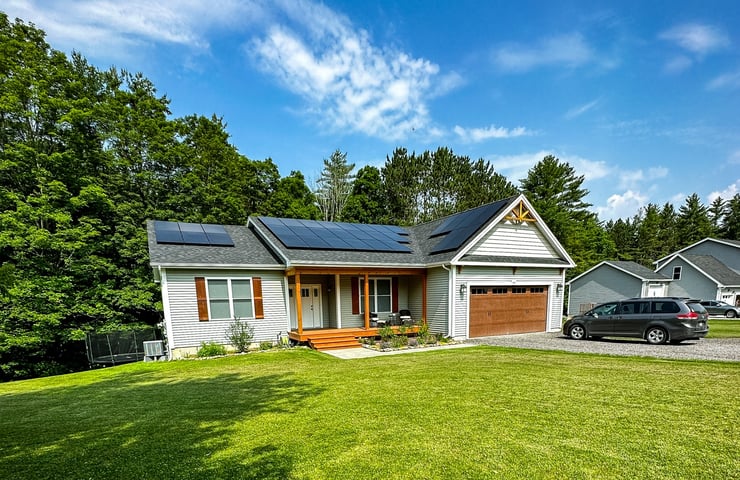Debunking the Myth: Do Solar Panels Really Melt Asphalt Shingles?
In recent years, as solar energy gains popularity as a sustainable and clean power source, several myths and misconceptions have surfaced. One persistent myth suggests that solar panels can melt asphalt shingles on rooftops. This claim has raised concerns among homeowners considering solar installations, as it poses potential damage to their roofs and property. In this blog post, we will delve into the truth behind this widespread misconception and explore the science behind solar panel performance and their interaction with roofing materials.

Understanding Solar Panel Temperatures:
To address the myth, we must first understand how solar panels operate and the temperatures they can reach during peak sunlight exposure. Solar panels are designed to absorb sunlight and convert it into electricity through photovoltaic cells. As they convert sunlight into energy, solar panels may generate heat. However, modern solar panels are engineered to manage their temperature effectively to ensure optimal performance.
Temperature Tolerance of Solar Panels:
High-quality solar panels are equipped with advanced technologies that efficiently dissipate heat, maintaining the panels at safe and manageable temperatures. Most solar panels have a temperature tolerance range of around -40°C to 85°C (-40°F to 185°F). While solar panels can get warm during operation, they are designed to handle various weather conditions without causing damage to roofing materials.
Interactions with Asphalt Shingles:
Asphalt shingles, commonly used as roofing materials, have their own temperature tolerances. The melting point of asphalt shingles is typically around 150°C to 260°C (300°F to 500°F). Solar panels never reach such extreme temperatures during normal operation, so the claim that solar panels can melt asphalt shingles is unsubstantiated.
The Role of Proper Installation:
To ensure the optimal functioning and longevity of both solar panels and roofing materials, proper installation is crucial. Qualified solar installers follow industry best practices, including mounting solar panels with the right spacing, ventilation, and orientation. Proper installation helps prevent any potential adverse effects on the roof and ensures the safe and efficient operation of the solar system.
Benefits of Solar Panels for Your Roof:
Now that we have debunked the myth surrounding solar panels and asphalt shingles, it is essential to recognize the many benefits of solar installations for your roof and home. Solar panels can:
-
Increase Roof Longevity: Solar panels act as a protective barrier against harsh weather elements, extending the lifespan of your roof.
-
Reduce Energy Costs: By harnessing the sun's energy, solar panels help lower your electricity bills, providing long-term savings.
-
Boost Property Value: Solar installations increase the resale value of your home, making it more attractive to potential buyers.
-
Support Sustainability: Choosing solar power contributes to a cleaner environment and reduces your carbon footprint.
The myth that solar panels can melt asphalt shingles is simply not grounded in truth. With advanced technologies and proper installation, solar panels pose no threat to your roofing materials. In fact, they offer numerous benefits, from reducing energy costs to promoting environmental sustainability. If you are considering going solar, rest assured that investing in solar energy is a wise and eco-friendly decision that will only enhance the value and efficiency of your property.
Remember, when planning your solar installation, always work with reputable solar companies and certified installers to ensure a successful and trouble-free solar journey. Let's move forward with renewable energy and dispel the myths that hold us back from embracing a cleaner, brighter future.

Leave a Comment